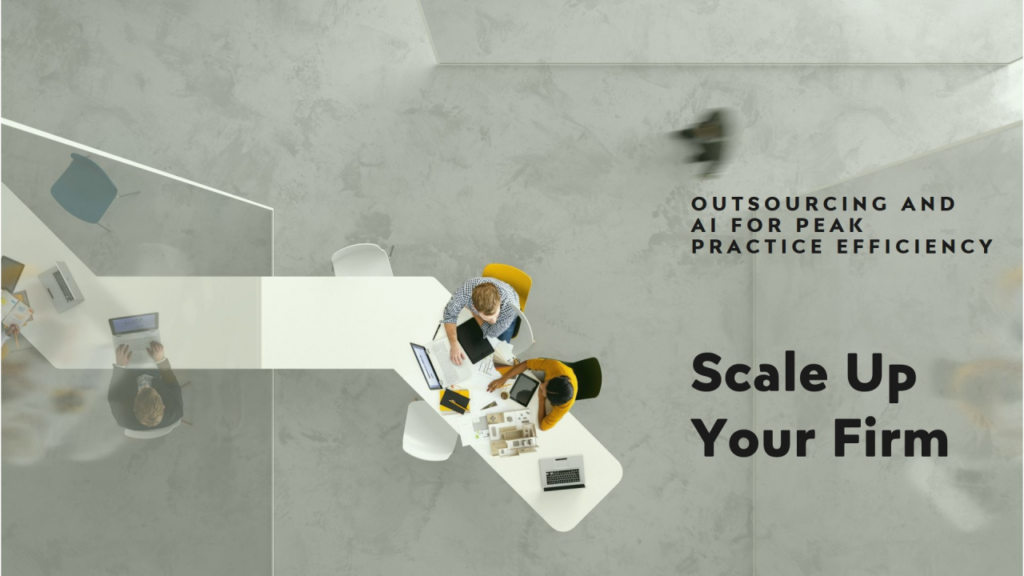PEAK PRACTICE
Peak Practice is a community that delivers expert industry insights on how to scale, streamline, and accelerate personal injury law practices. By providing knowledge and resources on law firm operations, marketing, and business growth, Peak helps personal injury attorneys gain a competitive edge. As the leader in lien resolution, Synergy partners with firms to eliminate settlement bottlenecks, optimize client outcomes, and drive greater profitability—so you can focus on securing justice. Join the community here and discover how partnering with Synergy helps you achieve Peak Practice.
Below are our Synergy InSights on all things related to Peak Practice.
Running a successful personal injury law firm requires more than just excellent legal skills—it demands business acumen, strategic processes, and a client-focused mindset. Mike Morse, a leader in the industry, has scaled his practice to serve over 40,000 clients, achieving $1.5 billion in recoveries. He was a guest on my podcast, Trial Lawyer View by Synergy, and here are his key insights on how law firms can improve operations, scale effectively, and achieve exceptional results.
Run Your Firm Like a Business, Not Just a Law Practice
Mike emphasizes the importance of adopting a business-oriented approach to law firm operations. Many lawyers focus solely on working up cases to full value but neglect their firm’s overarching operations and profitability. To thrive, treat your firm like your biggest case—apply the same level of attention, strategy, and effort. This includes:
Setting Goals and Tracking Metrics: Know your weekly and annual targets, average fees, and profitability metrics. Without this data, it’s impossible to identify problems or scale effectively.
Developing Processes: Establish clear, repeatable processes to ensure consistency in client service and case management.
Delegate and Build a Strong Leadership Team
A common mistake law firm owners make is trying to do everything themselves. Mike advises leaders to identify their role—whether they are a visionary or an integrator—and delegate tasks to those better suited for them. His own success stems from hiring key leaders like a COO, CFO, and department heads. His suggestions were:
Hire a COO Early: Bringing in a COO to manage day-to-day operations allows lawyers to focus on legal work and strategic vision. Mike’s COO, John Nachazel, oversees 14 department heads and ensures smooth operations.
Client Experience Matters: Mike has a dedicated client experience manager whose sole responsibility is to ensure client satisfaction, from resolving complaints to securing five-star reviews.
Cultivate a Client-Centric Culture
Satisfied clients drive repeat business and referrals. To maintain high levels of client satisfaction, Mike has created a system that prioritizes client needs:
Dedicated Client Experience Staff: Full-time roles focused on handling client concerns and ensuring satisfaction are integral to his firm’s operations.
Empowering Staff: Equip team members with resources to address issues creatively, such as sending gifts or solving problems quickly.
Avoid Common Pitfalls
From his experience coaching law firms, Mike identifies key mistakes many firms make, including:
Failing to Track Key Metrics: Many lawyers don’t know basic numbers, like average fees or weekly intake goals. Understanding these is critical for identifying growth opportunities.
Wearing Too Many Hats: Leaders often try to juggle every role—CFO, CMO, case manager—leading to burnout and inefficiency. Delegate tasks to specialists.
Ignoring Core Values: Establish clear values and ensure every team member aligns with them. This helps in hiring, retaining, and motivating staff.
Stand Out with Unique Marketing
To scale, firms need more than just great service—they need exceptional marketing. Mike advises lawyers to avoid “vanilla” ads and instead find their firm’s unique voice, connecting with their community in authentic ways. This distinctiveness can set a firm apart in a competitive market.
Adopt an Entrepreneurial Operating System (like EOS) and Customize It
Mike credits much of his success to the EOS Worldwide Entrepreneurial Operating System, a framework for running businesses effectively. While EOS offers great tools, Mike tailored it to meet the specific needs of law firms, including more frequent check-ins and accountability measures. Having an operating systems helps you to:
Focus on Metrics: Use tools like Power BI to build a robust scorecard (or “Jumbotron”) to track performance metrics in real time.
Iterate and Improve: While EOS requires quarterly check-ins, Mike’s team offers additional support to law firms through his coaching business, Fireproof Performance, helping them accelerate growth and refine processes.
Embrace Coaching and Continuous Learning
Mike attributes his success to working with business coaches like Gino Wickman (of Traction fame) and surrounding himself with mentors. He believes every law firm owner should have a coach to hold them accountable and provide an outside perspective. This led him to create Fireproof:
Fireproof Performance Coaching Program: Drawing on his 32 years of experience, Mike’s coaching program blends EOS principles with a legal-specific focus, helping firms implement processes faster and more effectively.
The Takeaway: Build for Long-Term Growth
Scaling a law firm requires vision, discipline, and the willingness to treat the business side with as much care as the legal side. Mike’s methods—whether through EOS, hiring the right people, or focusing on client satisfaction—demonstrate how law firms can grow sustainably while maintaining exceptional service.
If you’re ready to transform your firm, ask yourself: are you spending enough time working on your business, or are you stuck working in it? Making the shift could be the key to unlocking your firm’s potential. If you need to free yourself and your firm from the burdens of healthcare lien resolution, consider partnering with synergy. today.
https://www.linkedin.com/pulse/key-insights-scaling-your-personal-injury-law-firm-jason-d–me9ze
A busy personal injury practice is a whirlwind of deadlines, documents, and demanding tasks. As the owner of a personal injury firm, your team’s time is your most valuable asset. But with endless administrative functions vying for your team’s attention, it’s easy to get bogged down in the minutiae and lose sight of the big picture of accelerating resolution of your inventory at the highest possible value.
What if you could reclaim your team’s lost hours and focus on what truly matters – getting great outcomes and building client relationships?
The answer lies in strategic outsourcing and the power of AI.
By entrusting routine tasks to skilled outsourced professionals and leveraging cutting-edge technology, you can streamline your operations, boost efficiency, and unlock your firm’s true potential.
Outsourcing: Your Secret Weapon for Success
“Opportunities for outsourcing exist for law firms,” according to Nina Cunningham for Altman Weil. “Over the four decades since the explosive growth in private firms began, many of their needs have been outsourced.”
Since law firms are essential professional problem solvers, if outsourcing makes it easier, quicker and cheaper to solve the client’s problem and resolve their personal injury case, then it should be contemplated. Think of outsourcing as delegating tasks to specialists who excel in their respective fields. This allows your in-house team to concentrate on high-value work that requires their legal expertise. Here are some key areas where outsourcing can revolutionize your practice:
Specialized Expertise: For any tasks where your team or you lack the specialized expertise, consider outsourcing it. A great example of this is healthcare lien resolution.
Mundane tasks: “Be sure neither you, nor your best workers, devote time to tasks that don’t fit the appropriate skill set or level of expertise,” according to Inc. “These repetitive to-dos aren’t building your teammates’ skill levels; they’re simply getting faster at doing template work. You need them on more demanding tasks. Automate what you can and outsource the rest.”
Things You and Your Firm Aren’t Good At: “Be sure neither you, nor your best workers, devote time to tasks that don’t fit the appropriate skill set or level of expertise,” according to Inc. “These repetitive to-dos aren’t building your teammates’ skill levels; they’re simply getting faster at doing template work. You need them on more demanding tasks. Automate what you can and outsource the rest.”
What are some examples of all of these? The following is a good starting point:
- Lien Resolution: Dealing with liens can be a complex and time-consuming process. Outsourcing lien resolution to experts ensures accurate identification, negotiation, and resolution of all liens, minimizing your financial risk and maximizing client recoveries.
- Medical Record Retrieval and Review: In personal injury, medical malpractice, or any case involving medical records, accurate and timely retrieval and review are crucial. Outsourcing to specialized companies ensures efficient handling of these often complex and voluminous documents. They can quickly obtain records from various providers, organize them, and even provide expert analysis, saving you valuable time and resources.
- Document Preparation and Management: From contracts and pleadings to discovery requests, legal documents are the lifeblood of your practice. Outsourcing document preparation and management to skilled professionals ensures accuracy, consistency, and timely completion, freeing your team from tedious tasks.
- Client Intake and Follow-Up: First impressions matter. Outsourcing client intake ensures a seamless and professional onboarding experience, while ongoing follow-up keeps clients informed and engaged, fostering trust and loyalty.
- Calendar Management and Scheduling: Never miss a deadline or double-book an appointment again. Outsourcing calendar management to a virtual assistant brings order to your schedule, allowing you to focus on your legal work without the stress of juggling appointments.
- Billing and Invoicing: Accurate and timely billing is essential for your firm’s financial health. Outsourcing this function ensures prompt invoice generation, efficient payment tracking, and reduced risk of errors, improving cash flow and client satisfaction.
- Transcription Services: Accurate transcripts of depositions, hearings, and client meetings are vital for case preparation. Outsourcing transcription ensures high-quality, timely, and confidential handling of these critical documents.
Offshore Talent and Automation: Boosting Efficiency and Reducing Costs
In addition, consider tapping into the global talent pool by utilizing offshore resources for tasks like data entry, document review, and even background case research. This can significantly reduce costs while maintaining high quality.
Furthermore, embrace automation tools to streamline repetitive tasks like document assembly, client communication, and appointment reminders. This not only saves time but also minimizes the risk of human error.
AI: The Future of Legal Practice
Artificial intelligence is rapidly transforming the legal landscape. AI-powered tools can assist with legal research, document review & analysis, and even predict case outcomes. By incorporating AI into your workflow, you can gain a competitive edge and enhance your efficiency.
Here’s how AI can potentially supercharge your practice:
- Automated Document Review: AI algorithms can quickly analyze vast amounts of documents, identifying key information and potential risks, saving you countless hours of manual review.
- Predictive Analytics: AI can analyze case data and predict outcomes, helping you make informed decisions and develop effective legal strategies.
Conclusion
By embracing these strategies, you can transform your law firm into a well-oiled machine, freeing yourself from the burden of administrative tasks and allowing you to focus on what you do best: practicing law and helping more clients.
https://www.linkedin.com/pulse/scale-up-your-firm-outsourcing-ai-peak-practice-jason-d–6vquc
In the competitive world of personal injury law, achieving success requires more than just legal expertise; it demands a keen understanding of financial management. As your practice expands, effectively managing finances becomes crucial for sustained growth and profitability. This blog post explores key strategies to optimize your firm’s financial health and unlock its full potential.
The Challenge
Personal injury lawyers face unique financial challenges. Case-related expenses, including administrative overhead, expert witness fees, and medical record retrieval, can be unpredictable and substantial. The contingent nature of legal fees adds another layer of complexity.
This leads to some common challenges emerging. As caseloads increase, tracking and managing individual case costs becomes more complex. Failing to accurately capture expenses can significantly impact profitability. If you decide to not self-fund cases costs, financing litigation expenses, especially for multiple high-value cases, can strain cash flow and limit your firm’s ability to invest in growth. Another ongoing challenge is effectively managing your team and allocating financial and human resources across numerous cases. Managing your team requires careful planning and execution.
Strategic Solutions
Overcoming these challenges requires a proactive and sophisticated approach to accounting and financing. It’s about implementing scalable financial practices that evolve with your growing practice. There are a few key strategies to consider. The first strategy involves developing a strong financial team within your firm. For smaller firms, engaging external accounting and financing experts can provide specialized knowledge without the long-term commitment of hiring in-house. As your practice expands, a fractional CFO offers a balance of expertise and flexibility, providing high-level financial guidance on a part-time basis. For larger firms with substantial caseloads and complex financial needs, a full-time CFO can provide dedicated financial leadership and oversight. The optimal strategy depends on your firm’s size, financial health, and the nature of your cases.
Aside from having a strong team to assist with the accounting and financing function of the firm, also consider:
Leveraging Technology & Offshore Talent
In today’s interconnected world, law firms can leverage technology and offshore talent to further reduce case costs and improve efficiency. Cloud-based legal practice management software can automate tasks, improve collaboration, and reduce the need for paper files. Additionally, outsourcing tasks like legal research, document review, and administrative support to qualified offshore professionals can significantly lower overhead while maintaining quality.
Case Cost Financing
Case cost financing is another strategy that can be deployed which can liberate valuable capital, allowing you to reinvest in areas crucial to your firm’s growth, such as talent acquisition, technology upgrades, and operational expansion. There are many great options for partnering with a financing provider that specialize in funding costs in the legal space. Exploring these options to determine how to leverage them is a great opportunity to create more financial flexibility.
Outsourcing Administrative Functions
Outsourcing administrative tasks, such as lien resolution, can significantly improve efficiency and reduce costs. By entrusting these tasks to specialized providers, you can:
Reduce Overhead Costs: Eliminate the need for in-house staff dedicated to administrative duties.
Enhance Efficiency: Benefit from the expertise and streamlined processes of specialized providers.
Free Up Internal Resources: Allow your legal team to focus on core legal work, maximizing productivity and client service.
Mitigate Risk: Minimize the risk of errors and delays.
Conclusion
In the dynamic world of plaintiff’s law, success hinges on legal prowess and sound financial management decisions. By proactively addressing cost management challenges and embracing strategies like leveraging technology, hiring offshore talent, exploring case cost financing and outsourcing, you can pave the way for sustainable massive growth.
https://www.linkedin.com/pulse/mastering-art-law-firm-growth-through-financial-jason-d–u4hge
In the operation of a personal injury law firm, time is money. The longer a case sits on your firm’s desk, the longer it takes for your client to receive their recovery and for the firm to see revenue from it. That’s where “Time on Desk” comes in – the period from when a client hires you to when you close the case by disbursing. Credit to John Nachazel for his LinkedIn post with that term and which sparked the ideas for this post. You can find his post at: John Nachazel LinkedIn Post
Optimizing Time on Desk is one of the most effective ways to increase your firm’s profitability without adding caseload. Here’s how focusing on Time on Desk metrics and outsourcing lien resolution can help streamline your process and boost your bottom line:
Leveraging Metrics to Drive Efficiency
By tracking key Time on Desk metrics across your caseload, you can pinpoint exactly where inefficiencies are occurring. Are cases getting stuck in the settlement-to-disbursement phase? Are you losing time during the pre-litigation or complaint stages?
With the right data, you can identify these bottlenecks and take action to resolve them. Pinpointing breakdowns in the process to see where cases are lagging is critical to be able to come up with an appropriate fix. By measuring progress at every step, you can set clear expectations for your team and create a culture of accountability that drives case closure faster.
Why Time on Desk Matters
According to John Nachazel of Fireproof Performance and COO of Mike Morse Law Firm, a firm’s revenue typically comes in between 18 and 36 months after a client hires you. However, if you can reduce the time it takes to move a case through your system, you will accelerate receipt of revenue, disburse client funds more quickly and free up more time to handle additional cases. The result? More revenue without increasing your workload. As John Nachazel put it, “accelerating throughput . . . increase[s] firm revenue without increasing caseload.” He theorized that shaving even 30 days off the average timeline of 18-36 months would allow a firm to do 13 months of work in a 12-month year. The question is where do you find 30 days or even more aggressively, 45 days as John suggested?
John outlined that there are 3 phases of the litigation process where those time savings could realistically occur:
Phase 1 – Time between signing a client and filing a lawsuit;
Phase 2 – Time between drafting and serving a complaint; and
Phase 3 – Time between case settlement and disbursement.
This third phase is one that can be positively impacted by outsourcing lien resolution.
The Bottleneck: Lien Resolution Holding Up Disbursement
The key bottleneck for many firms comes at the settlement-to-disbursement phase, particularly the lien resolution process. Resolving liens is tedious and time-consuming, which creates a frustrating bottleneck. Think about all of the time spent on lien resolution to-dos, paperwork, chasing down medical records, and haggling with lien holders. This phase often drags on needlessly, holding up disbursement and preventing you from moving on to the next case. As a result, your firm’s cash flow is slowed, and you’re left waiting to wrap up cases and move on to new ones.
Outsourcing lien resolution allows you to offload this critical yet time-consuming task to experts who can handle it efficiently. This frees up your team to focus on what they do best. By outsourcing, you can speed up the entire case resolution timeline, ultimately freeing up time for other cases and allowing your firm to increase throughput.
The Power of Outsourcing
When you outsource lien resolution, you’re not just saving time – you’re also ensuring that your team’s efforts are focused on their highest-value tasks. Tasks like increasing the value of existing cases, bringing in new clients and building your practice. Outsourcing lien resolution gives you seasoned experts who can work on your behalf, ensuring that your client’s funds get disbursed promptly. Meanwhile, your in-house team can continue to move cases forward, maximizing efficiency across the board.
By outsourcing these non-core activities, you streamline your operations, reduce overhead, and ultimately increase profitability. Your firm can handle more cases in less time, leading to better/faster resolution and higher revenue. It is part of a holistic plan to cut down Time on Desk.
Maximize Your Firm’s Potential
Time on Desk is a critical metric that determines how quickly your firm can turn cases into cash. By focusing on reducing delays and outsourcing, you can accelerate the process, increase profitability, and improve client satisfaction.
As the end of the year approaches, are you making good progress on reducing Time on Desk? Do you have files sitting on your desk that can’t be disbursed because of liens? Do have a strategic plan to reduce Time on Desk in phase 3 for 2025?
https://www.linkedin.com/pulse/time-desk-shave-days-unlock-more-profit-lazarus-j-d-ll-m-mscc-j5hpe
For personal injury law firms, balancing growing caseloads with the demands of administrative tasks can strain resources and hinder profitability. Some examples are tasks like healthcare lien resolution, medical record retrieval and review which are tedious as well as time consuming for staff. There are also higher-level tasks which firms may not have current capability in-house to handle like CFO tasks or marketing/lead generation. Outsourcing these tasks/functions offers a proven path to efficiency, enabling personal injury firms to focus on what they do best.
The Administrative Burden: Challenges Facing Personal Injury Firms
Navigating the complexities of operating a personal injury law firm with irregular cash flow presents significant challenges for growing firms. As firms scale, they encounter three key challenges in managing administrative tasks effectively:
- Rising Case Volumes Increased caseload amplifies the complexity of tracking and resolving administrative details. Each case requires careful attention to detail, and any misstep can impact upon the firm’s results and profitability.
- Cash Flow Strains Administrative tasks often create financial stress given their time-consuming nature and taking the focus off tasks that increase the value of a case. Carrying the costs of managing these internal processes can strain cash flow, particularly in firms with increasing caseloads.
- Resource Allocation Ensuring the right staff and resources are devoted to each case is critical. Poor resource allocation risks inefficiencies and diminished client satisfaction.
Outsourcing: Gain Efficiency at Scale
To effectively address these challenges, personal injury law firms must adopt a sophisticated and proactive strategy. Strategic outsourcing is a powerful solution. By leveraging external expertise, personal injury firms can optimize operations while maintaining key operating standards in a much more profitable manner.
Here are some impactful strategies that personal injury law firms should consider:
- Partner with Specialized Service Providers Specialized providers can manage complex administrative tasks, ensuring compliance and consistency without the need for full-time hires.
- Hire Fractional Support Fractional support offers part-time expertise, allowing for cost-effective scalability and targeted resource allocation.
Choosing the Right Approach The decision to outsource administrative tasks largely hinges on the firm’s current size, financial health, and the complexity of the cases it handles. Engaging specialized service providers is a great strategy for firms looking to capitalize on immediate expertise in a specialized area without having to hire their own staff in-house. Great examples of this are healthcare lien resolution firms, medical record retrieval companies and medical record summary services. Certain firms may benefit from fractional administrative support who can offer specialized expertise on a part-time basis, providing the firm with a cost-effective solution. There are many fractional services that can enhance a firm’s operations like a fractional CFO provider or a fractional marketing/lead generation expert.
Unlocking Growth Through Outsourcing
Outsourcing administrative tasks isn’t just about operational relief—it’s a growth strategy. By strategically partnering with reputable service providers, personal injury law firms can free up valuable time and resources. This approach enables firms to reinvest in crucial areas such as hiring top legal talent, expanding operational capabilities, and implementing innovative technologies. Through outsourcing, law firms can attain operational flexibility and enhance their overall efficiency.
Conclusion
As personal injury firms navigate the challenges of growth, integrating outsourced solutions with technological advancements positions them for sustainable growth. Streamlining administrative burdens through outsourcing is not merely an operational tweak—it’s a transformational strategy for thriving in today’s legal landscape.
https://www.linkedin.com/pulse/streamlining-administrative-tasks-blueprint-personal-jason-d–dddie
In my many years of partnering with personal injury law firms, a clear pattern has emerged: the most successful law firms are those that prioritize focus, discipline, and accountability. While the first two elements are essential for any law firm, the power of accountability can significantly amplify growth potential. Another additive ingredient for growth is streamlining operations relentlessly which includes outsourcing of administrative tasks like healthcare lien resolution and medical record retrieval. The key is to get away from the mindset of being just a law practice and operate as a business with a high performing team. How do you do that? You have to get your people to buy in and spread some of the responsibility for growth to them!
The Foundation of Success: Focus, Discipline, and Efficiency
Highly successful personal injury law firms consistently demonstrate exceptional focus on their core mission, discipline in the way they execute, and a strategic approach to streamlining their operations. By maintaining a clear vision, setting achievable goals, and delegating administrative tasks, they create the conditions for sustained growth.
The Power of Accountability: Driving Results
To ensure that focus, discipline, and operational efficiency are translated into tangible results, accountability is essential. Here are a few tactics law firms can use to foster the right environment for fueling massive growth:
Strong Leadership: Create a strong leadership team that helps the law firm owner run the business day to day. An essential ingredient is a COO (Chief Operations Officer) who is empowered to hold individuals and teams accountable for their performance.
Peer Accountability: Encourage collaboration and peer review within the firm to foster a culture of accountability and continuous improvement. Implementing the EOS Traction model is a great way to create extreme accountability on your team. See my previous article on EOS HERE
Mastermind Groups: Participate in mastermind groups or peer advisory boards to benefit from the collective wisdom and accountability of like-minded professionals. Fireproof Performance is a great example of a company that provides this sort of a framework for optimizing law firm operations. Some others that provide similar resources are: Best Era & Evergreen
Work With Marketing Experts: Massive growth is fueled by increased intakes. How do you get more intakes? Work with experts in the field who can optimize the way you go to market and obtain leads. There are companies that can help with this like: Crisp, Rankings & SMB Team
Efficiency/Strategic Outsourcing: Partner with outsourcing providers who are committed to delivering high-quality results and are accountable for meeting agreed-upon performance metrics. Two great areas to explore for outsourcing include healthcare lien resolution and medical record retrieval.
A Synergistic Approach
By combining the principles of focus, discipline, accountability, and strategic streamlining of operations, law firms can:
Enhance Efficiency: Make operations more streamlined and reduce case turn times.
Improve Client Service: Deliver higher-quality representation and better/faster results.
Boost Profitability: Increase revenue and reduce costs through optimized resource allocation.
Attract and Retain Talent: Create a more attractive work environment for employees.
Conclusion
In today’s competitive legal landscape, law firms that can effectively manage their resources and maximize their focus on core competencies are poised for massive growth. By strategically outsourcing administrative tasks, fostering accountability, and maintaining a strong foundation of focus and discipline, firms can unlock their full potential and achieve long-term success.
If you want to learn more about outsourcing lien resolution to Synergy, go to www.partnerwithsynergy.com
To learn more about the Traction/EOS model go to www.eosworldwide.com
https://www.linkedin.com/pulse/unlocking-massive-law-firm-growth-jason-d-lazarus-j-d-ll-m-mscc-e4qye
BLOGS
READY TO SCHEDULE A CONSULTATION?
The Synergy team will work diligently to ensure your case gets the attention it deserves. Contact one of our legal experts and get a professional review of your case today.






